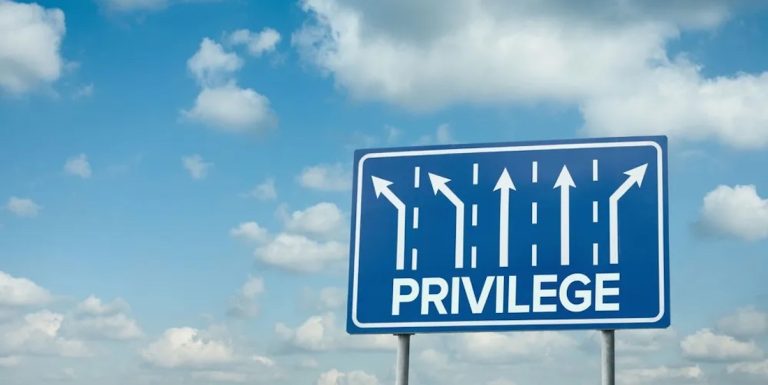
Organizational psychologist challenges people to recognize systematic advantages through everyday examples

New York, N.Y. – A groundbreaking analysis by organizational psychologist Dr. Steven Jones uses an unexpected analogy to help people understand the complex concept of unearned privilege: examining how society caters to right-handed individuals at the expense of left-handed people.
In his research paper “The Right Hand of Privilege,” Dr. Jones, CEO of Jones & Associates Consulting, argues that “some individuals receive unearned advantages in life solely based on being a member of certain social identity groups.” His right-handed world example provides a lens for understanding systemic privilege without the historical baggage of other social identity discussions.
The Invisible Architecture of Right-Handed Society
Dr. Jones systematically demonstrates how society’s infrastructure favors right-handed people through countless everyday examples.

“We shake with our right hands. We pledge with our right hand. We salute with our right hand. We take legal and governmental oaths with our right hand,” he explains, highlighting how fundamental social rituals reinforce right-handed dominance.
The systemic advantages extend far beyond ceremonial gestures. School desks, computer mice, cars, notebooks, three-ring binders, guns, appliances, and even coffee mugs are designed with right-handed users in mind.
“Most coffee mugs are designed for right-handed people to pick up and see the picture or words. If a left-handed person picks up the same mug, there is nothing there to see!” Dr. Jones notes.
This institutional design creates what Dr. Jones calls “a wind of unearned privilege behind some people’s sail gets them further along in their journey,” while others experience disadvantages that create headwinds or no assistance at all.
When Normal Becomes Standard
A critical insight from Dr. Jones’s analysis involves how cultural dominance becomes invisible through standardization. “One of the ways in which unearned privilege occurs is when one group’s culture, values and ways of interpreting the world get built into the fabric of institutions within a society and are then made invisible,” he explains.
This invisibility manifests in language and product design. While left-handed desks and baseball mitts are specifically labeled as such, their right-handed counterparts are simply called “desks” and “baseball mitts.” The dominant group’s needs become the unmarked standard, while minority needs are treated as special accommodations.
Dr. Jones visited Southpaw Shoppe, a store dedicated to left-handed products in San Diego, with a left-handed friend who “got very excited because everything in the store was made for her.” This experience highlighted how rarely left-handed people encounter environments designed for their needs.
Resistance and Defensive Responses
The research identifies common defensive reactions when privilege is discussed. Dr. Jones presents hypothetical responses from right-handed people that mirror real reactions to conversations about other forms of unearned advantage: “As a right-handed person, I don’t have any privilege. I’m just an individual who works hard everyday to make ends meet. This is America. Everyone gets the same opportunities.”
These responses demonstrate how privilege remains invisible to those who benefit from it. “How many of you, who are right-handed, wake up in the morning thinking ‘my people rule…’ Do you realize you live in a world which affords you all this privilege everyday?” Dr. Jones challenges readers.
The Left-Handed Experience

Left-handed individuals often face negative experiences that right-handed people rarely consider.
Dr. Jones documents stories of people having “their hands painfully tied behind their back so they could learn to use their right hand” and being hit with rulers for using their dominant hand.
Many were told “that their child’s life would be easier if they just learned to use their right hand.”
These experiences illustrate how systemic disadvantage affects daily life and personal development. The pressure to conform to right-handed norms represents a form of assimilation that privileged groups rarely need to consider.
Moving Beyond Guilt to Action
Dr. Jones emphasizes that understanding privilege isn’t about assigning blame or creating guilt. “Understanding unearned privilege is not about blaming people for the past. It is about identifying ways in which systems that have been created in the past and present provide advantage to certain groups while simultaneously posing disadvantage to other groups,” he clarifies.
The goal is creating awareness that enables positive change. “By becoming more aware of the ways in which we receive unearned privilege, we can become a part of creating teams, work environments, organizations, and a society which strive to create a playing field that is truly level for all,” Dr. Jones concludes.
Implications for Broader Social Understanding
Dr. Jones’s right-handed world analysis provides a framework for examining other forms of systemic privilege based on race, gender, sexual orientation, and other social identity groups. By using an example with less historical controversy, he helps people recognize how institutional systems can inadvertently favor certain groups while creating barriers for others.
The research challenges individuals to move beyond purely individual perspectives and consider how group-level dynamics and systemic structures shape opportunities and experiences in ways that may be invisible to those who benefit from them.

#Unearned Privilege #SystemicAdvantage #RightHandedWorld
#SocialEquity #InclusiveDesign #OrganizationalPsychology #DiversityEducation
#PrivilegeAwareness #SystemicInequality #LevelPlayingField
Tags: unearned privilege, systemic advantage, right-handed world, social identity groups, diversity education,
organizational psychology, Jones & Associates Consulting, institutional design, Dr. Steven Jones, social equity,
cultural dominance, left-handed discrimination, inclusive environments, systemic inequality, privilege awareness
